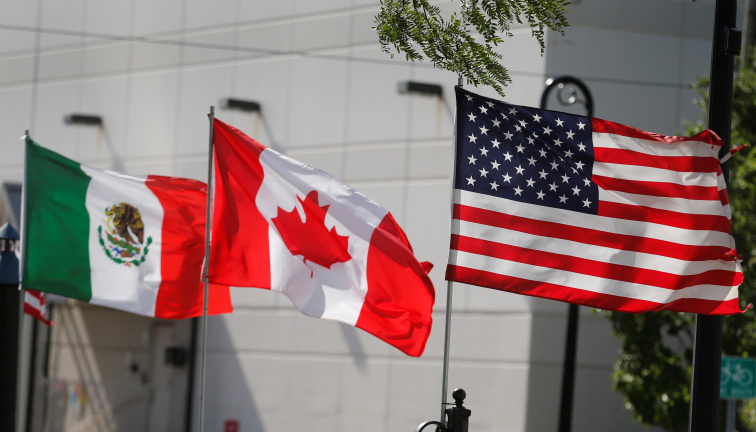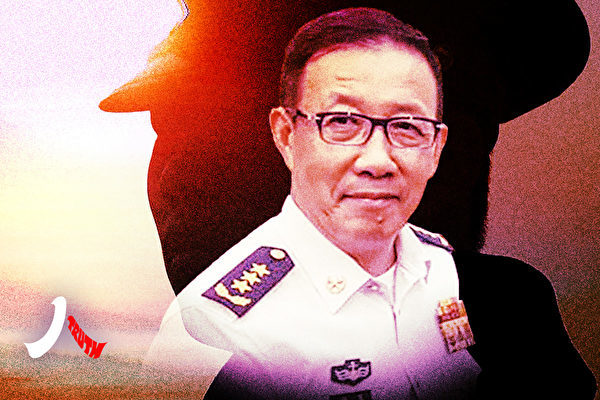On December 4, 2024, CCP leader Xi Jinping and members of the Central Military Commission visited the headquarters of the CCP’s Information Support Forces in Beijing and met with representatives of the Party Congress of the Information Support Forces, extending "warm congratulations." However, most people’s faces showed no signs of joy. Zhang Youxia, standing behind Xi Jinping, was seen in video footage watching intently and with a stern expression as people shook hands with Xi.(Video Screenshot)
[People News] On December 5, the Chinese military's official website and state media reported on Xi Jinping's inspection of the Information Support Forces. Accompanying him were the four remaining members of the Central Military Commission: Zhang Youxia, He Weidong, Liu Zhenli, and Zhang Shengmin. During his speech to the officers of the Information Support Forces, Xi emphasized the need to build a strong, modernized military and to "promote leapfrog development in the construction of network information systems." He also urged the implementation of the "spirit of the Central Military Commission's Political Work Conference," adherence to the "fundamental principle and system of absolute CCP leadership over the military," and strict anti-corruption measures to ensure the military's "absolute loyalty, purity, and reliability." These statements reflect Xi's consistent approach of "politicizing the military," though he avoided using that specific term this time.
Just one day later, the Chinese military's website and newspaper published a striking piece of news. The article, subtitled "A Certain Unit of the Information Support Forces Deeply Implements the Spirit of the Central Military Commission's Political Work Conference," bore the main headline: "Leading by Example, Uniting Hearts and Minds to Pursue Victory."
The report primarily focused on how the Party Committee of a specific unit within the Information Support Forces responded to the Central Military Commission's Political Work Conference. It stated that the committee members "earnestly studied and understood Chairman Xi's important speech." How did they interpret it? By advocating a "restoration and promotion of the fine traditions of political work," with Party cadres required to "serve as role models and lead by example" to "inspire and mobilize the troops."
This report openly contradicts and undermines Xi's message! The so-called "spirit of the speech" the report claims to implement appears at odds with what Xi intended to convey at the conference.
The Central Military Commission (CMC) Political Work Conference was held on June 17, and according to official statements, it was "convened under Xi Jinping's personal decision." In his speech, Xi consistently emphasized the concept of "politicizing the military," stating that "currently, the international situation, national conditions, Party dynamics, and military affairs are undergoing complex and profound changes. Our military is facing intricate and complex political tests. We must firmly grasp the requirements of politicizing the military in this era and relentlessly advance this approach." He also asserted that "political work will always be the lifeline of our military" and that "mastering ideological leadership is the foundation for mastering all forms of leadership." Xi’s repeated emphasis on politicizing the military aims to ensure the military's loyalty to him. Over the past year, several figures, including commanders and deputy commanders of the Rocket Force, two successive defense ministers, and leaders of military-industrial enterprises, have been arrested or investigated, with the root cause being their lack of loyalty to Xi.
Xi also evidently targeted senior military leadership, specifically stressing that "senior officials must integrate themselves into this process, muster the courage to set aside personal pride and expose their shortcomings, and, with an attitude of deep reflection and soul-searching, seriously address and rectify fundamental ideological issues, driving the process of politicizing the military deeper and more effectively."
The training program for newly appointed secretaries of the Discipline Inspection Commissions and directors of Supervisory Committees for all military units at the corps level and above, which concluded in mid-June, clearly indicated that senior military officers would become targets of scrutiny. In a military rife with corruption, how many high-ranking officers must have been trembling internally?
By convening the CMC Political Work Conference in June and simultaneously conducting this training, Xi Jinping left no doubt about his intentions: to launch a new round of purges within the military, targeting those senior officers who are disloyal to him. This may potentially include high-ranking officials implicated in bribery cases, such as those involving Li Shangfu.
After rumors of Xi suffering a stroke surfaced during the July Third Plenum, unusual signs began to emerge within the CCP’s military and Party ranks. These signs point to a potential decline in Xi's grip on power. For example, in coverage of Xi’s recent inspection of the Information Support Forces, the military’s official website displayed a group photo of Xi with other CMC members above a solo photo of Xi. This contrasts with Xinhua and People’s Daily, which featured Xi’s solo image prominently. This deviation from the norm appears intentional, subtly signaling that Xi no longer holds an unassailable position in the military, and that collective CMC authority may now outweigh Xi’s personal authority. Such signals echo the post-Lin Biao era, when subtle gestures hinted at internal upheaval.
The most recent sign of discord came when the military website published a report on the Information Support Forces' interpretation of the CMC Political Work Conference. A specific unit of the Information Support Forces claimed to be "deeply studying and implementing Chairman Xi’s important speech." However, the report’s interpretation starkly diverged from Xi’s intended message. By promoting the "restoration and promotion of the fine traditions of political work" and emphasizing collective leadership over individual loyalty, the report undermines Xi’s authority.
Ironically, the report mentioned its "earnest study" of Xi’s speech, yet it only referenced Xi Jinping once. Notably, it avoided expressing loyalty to Xi or endorsing the "CMC Chairman Responsibility System"—hallmarks of Party military rhetoric. Why was this the case?
The answer is clear: unless something significant has happened to Xi’s authority, neither the Information Support Forces nor their backers would dare challenge him so openly, nor would the military website publish such a report. These events suggest that the CCP military and Party are undergoing significant turmoil, with Xi’s status already altered. As for when the CCP might publicly acknowledge these changes, it will likely wait until internal power struggles are resolved. Until then, the signals of a shifting power dynamic will continue to emerge.
(Originally published by People News)











News magazine bootstrap themes!
I like this themes, fast loading and look profesional
Thank you Carlos!
You're welcome!
Please support me with give positive rating!
Yes Sure!